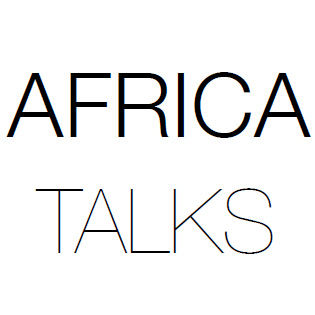Africa Talks double session
- Location
- Danford Room, 2nd floor, Arts Building (R16 on the campus map)
- Dates
- Wednesday 25 October 2017 (16:30-18:30)

Speakers: Dan Branch (University of Warwick) and Duncan Omanga (Moi University)
Part of the Africa Talks Seminar Series Autumn 2017.
All welcome.
Dan Branch, ‘Quiet Politics: Letter-Writing and the Affective Communities of Post-Colonial Kenya’
This paper sets out to answer two simple questions. First, how did Kenyans connect with government after independence in 1963? And, second, how did they understand independence and the responsibilities of the new rulers of the nation-state? In order to answer these questions, the paper uses letters written by Kenyans to officials and politicians operating at various levels of the new government. The letters are drawn from two largely unused collections of archival materials: the records of the Office of the President held in the Kenya National Archives in Nairobi and the papers of Tom Mboya available at the Hoover Institute Archive, Stanford University. The forms and contents of this voluminous correspondence allow us to consider the ways in which literacy, language, and notions of self, collective identities and citizenship, intersected with post-colonial statecraft. The paper argues that the letter-writers attempted to establish new pan-ethnic affective communities from their networks of addressees in order to affect political change in post-colonial Kenya.
Dan Branch is a professor in African History at the University of Warwick and head of the History department. He has written two books and several articles on the colonial and post-colonial history of Kenya. He is currently completing a book with David Anderson on histories of rebellion and collaboration across the British Empire, while looking to start a new project on the global history of Kenyan decolonisation.
Duncan Omanga, ‘Social Media and Democracy in Africa: ‘The Nakuru Analysts’ WhatsApp group and the Evolution of Participation in County Governance in Kenya’
The growth and penetration of the internet in Africa, coupled with the popularity and ubiquity of the mobile phone have positioned social media platforms as the new spaces through which Africans organize and imagine both political discourse and action. This lecture highlights the role of WhatsApp groups in Kenya’s Nakuru County in convening citizens for political deliberation and civic action in County government affairs. In the context of political and economic devolution in Kenya following the promulgation of a new constitution in 2010, this lecture shows how social media plays a critical role in localizing both formal and informal political discourse and action. The presentation narrows focus to (possibly) one of the most organized WhatsApp groups in Kenya, ‘the Nakuru Analysts’. The analysts, as they are popularly known, have used the affordances of WhatsApp such as the ability to carry text, picture and video at very low costs, and the possibility of the platform to convene groups for ‘talk’, to emerge as one of the most notable spaces for deliberation, agitation and for mobilizing for social, legislative and political action in the city of Nakuru. Specifically, I historicize how the Nakuru Analysts came into being, highlighting the specific contingencies that made it possible for ‘The analysts’ to become what they are today. Furthermore, the lecture offers an empirical insight into how WhatsApp groups are organized and the many ways through which they articulate their agenda. In doing so, I will show why the Nakuru Analysts have emerged as the most effective ‘check’ of the County government and why they have succeeded in ‘modulating’ Nakuru County politics. The lecture will also reveal the various digital roles taken by the ‘administrators’ and selected participants of these platforms, and how these positions shape grassroots politics in Nakuru. More important, I will highlight the real and perceived achievements of the analysts, thereby giving insights into how members draw from this critical digital space to set the local political agendas.
Duncan Omanga is currently the Head, Department of Publishing and Media Studies, Moi University. He is an alumnus of the Bayreuth International Graduate School of Graduate Studies (BIGSAS) at the University of Bayreuth, in Germany. Dr. Omanga is also a 2014 APN (Africa Peace Network-SSRC) alumni and was the 2015/6 African Visiting Fellow (Centre for African Studies) at the University of Cambridge. Dr. Omanga is the nominee for the 2017 Mary Kingsley Zochonis Lecture (ASAUK). The lecture is based on his current research on ‘Social Media and Public Participation in Kenya.’ He is a columnist in Kenya (currently with The Standard), and has previously ran a column for two years with The Daily Nation, East Africa’s biggest daily.